Ethical hacking has become a crucial practice in today’s digital landscape. With cyber threats becoming increasingly sophisticated, individuals and organizations need to be aware of potential vulnerabilities in their systems and networks. Ethical hacking tools and software provide the necessary means to identify and address these vulnerabilities before malicious hackers can exploit them. In this article, we will explore some of the essential tools and software that every ethical hacker should be aware of in 2023.
What is Ethical Hacking?
Ethical hacking, also known as white-hat hacking, involves using hacking techniques and tools to identify weaknesses in computer systems, networks, and applications. Unlike malicious hackers, ethical hackers perform their activities legally and with the permission of the system or network owners. The objective is to discover vulnerabilities and help organizations improve their security measures.
Importance of Ethical Hacking Tools and Software
Ethical hacking tools and software play a crucial role in the cybersecurity ecosystem. They enable security professionals to assess the security posture of systems and networks, identify vulnerabilities, and recommend appropriate countermeasures. These tools are designed to simulate real-world hacking scenarios and assist in finding weaknesses that could be exploited by cybercriminals. By leveraging ethical hacking tools, organizations can proactively protect their digital assets and prevent potential data breaches.
Must-Have Ethical Hacking Tools in 2023
Penetration Testing Tools
Penetration testing tools are used to simulate attacks on systems and networks, allowing ethical hackers to identify vulnerabilities. These tools help in assessing the overall security posture and determining if unauthorized access is possible. Here are three essential penetration testing tools for 2023:
Nmap: Nmap, also known as Network Mapper, is a versatile and powerful tool for network exploration and security auditing. It provides a range of scanning techniques and features that help identify open ports, discover hosts, and gather information about target systems.
Metasploit: Metasploit is a widely used framework for developing and executing exploit code against target systems. It includes a comprehensive collection of exploits, payloads, and auxiliary modules, making it an indispensable tool for penetration testing and vulnerability assessment.
Burp Suite: Burp Suite is an integrated platform for performing security testing of web applications. It includes various tools and features like a web proxy, scanner, and intruder, which aid in identifying and exploiting vulnerabilities in web-based systems.
Network Scanning Tools
Network scanning tools are essential for discovering devices, mapping network architectures, and identifying potential security weaknesses. They enable ethical hackers to gain insights into network infrastructures and evaluate their resilience against attacks. Here are two important network scanning tools:
Wireshark: Wireshark is a popular network protocol analyzer that captures and analyzes network traffic in real-time. It helps in monitoring and troubleshooting networks, as well as identifying security issues by inspecting packets and protocols.
Nessus: Nessus is a comprehensive vulnerability scanner that detects potential security vulnerabilities in systems and networks. It performs in-depth assessments and provides detailed reports, allowing security professionals to prioritize and address identified weaknesses.
Password Cracking Tools
Password cracking tools are used to test the strength of passwords and assess their susceptibility to unauthorized access. Ethical hackers employ these tools to identify weak passwords and educate users about the importance of strong authentication. Here are two widely used password-cracking tools:
John the Ripper: John the Ripper is a fast and flexible password-cracking tool. It supports various password hash types and employs different cracking techniques, such as dictionary attacks and brute-force methods, to recover passwords.
Hashcat: Hashcat is a powerful password recovery tool that can crack a wide range of hash types using both CPU and GPU resources. It utilizes advanced algorithms and techniques to speed up the cracking process and efficiently recover passwords.
Vulnerability Assessment Tools
Vulnerability assessment tools are crucial for identifying and prioritizing security vulnerabilities within systems, applications, and networks. They provide a systematic approach to evaluating security weaknesses and suggest remediation measures. Here are two essential vulnerability assessment tools:
OpenVAS: OpenVAS (Open Vulnerability Assessment System) is an open-source vulnerability scanner that helps in identifying and assessing security vulnerabilities in target systems. It offers a comprehensive and up-to-date vulnerability database, making it an invaluable tool for vulnerability management.
Nexpose: Nexpose is a commercial vulnerability management solution that provides accurate and actionable vulnerability assessments. It offers advanced scanning capabilities, risk scoring, and reporting features, assisting organizations in effectively managing their security risks.
Popular Ethical Hacking Software in 2023
Apart from individual tools, certain software packages encompass a wide range of ethical hacking capabilities. These software packages are highly popular among ethical hackers and security professionals. Here are three widely recognized ethical hacking software in 2023:
Kali Linux: Kali Linux is a powerful Linux distribution built for penetration testing and ethical hacking. It comes preloaded with numerous hacking tools and frameworks, making it a go-to platform for security professionals. Kali Linux provides a robust environment for conducting various security assessments.
Acunetix: Acunetix is a web vulnerability scanner that automates the process of finding security flaws in web applications. It detects common vulnerabilities such as SQL injection, cross-site scripting (XSS), and insecure server configurations. Acunetix offers a user-friendly interface and provides detailed reports on identified vulnerabilities.
Wi-Fi Hacking Tools: Wi-Fi hacking tools like Aircrack-ng, Fern Wi-Fi Cracker, and Reaver are widely used for assessing the security of wireless networks. These tools aid in testing the effectiveness of Wi-Fi encryption protocols and identifying potential vulnerabilities in Wi-Fi networks.
Ethical Hacking Software for Mobile Devices
As mobile devices continue to play a significant role in our daily lives, ethical hackers need tools specifically designed for assessing mobile security. Here are two noteworthy ethical hacking software for mobile devices:
zANTI: zANTI is a comprehensive mobile penetration testing toolkit that allows security professionals to assess the security posture of Android devices. It provides features like network mapping, port scanning, and vulnerability scanning, enabling ethical hackers to identify and exploit vulnerabilities.
AndroRAT: AndroRAT (Android Remote Administration Tool) is an open-source client-server application used for controlling Android devices remotely. Ethical hackers can leverage AndroRAT for penetration testing and analyzing the security of Android applications.
Choosing Ethical Hacking Tools and Software
When selecting ethical hacking tools and software, several factors should be considered to ensure effectiveness and suitability for specific scenarios. Here are some key considerations:
Compatibility and Supported Platforms: Ensure that the tools and software are compatible with the operating systems and platforms you are working with. Different tools may have varying support for Windows, macOS, Linux, or mobile platforms.
User-Friendliness and Ease of Use: Look for tools with intuitive interfaces and comprehensive documentation. Ethical hacking requires a learning curve, so user-friendly tools can significantly improve efficiency and productivity.
Community Support and Documentation: Opt for tools with active communities, forums, and extensive documentation. This ensures you have access to support, updates, and a knowledge-sharing network.
Cost and Licensing: Evaluate the cost implications and licensing models associated with the tools and software. Some tools may offer free or open-source alternatives, while others require paid subscriptions or licenses.
Conclusion
Ethical hacking tools and software are vital components in the arsenal of security professionals. In 2023, a wide range of tools and software are available to assist ethical hackers in identifying vulnerabilities, assessing risks, and improving the security posture of systems and networks. By leveraging these tools responsibly, individuals and organizations can stay one step ahead of cyber threats and protect their valuable digital assets.





